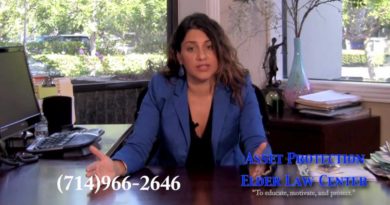This Veterans Pension Can Help With Living Assistance
People that serve in the military during wartime make enormous sacrifices for the country, but they also receive some valuable benefits as a reward. In addition to the retired pay that veterans can receive after 20 years of service, there is another special pension that flies under the radar.
Veterans Pension
The Veterans Pension is available to some former service members that are at least 65 years of age and/or permanently and totally disabled. Since this benefit is only available to wartime vets, there are some additional stipulations.
If you joined the service before September 7, 1980, you need 90 days of service with one day beginning or ending during a time of war. The required length of service is 24 months for those that joined after this date unless the entire tour of duty did not span all of 24 months.
This benefit is earmarked for people with financial need, so there is a net worth limit. The hard asset limit is a relatively new feature that was installed via legislative mandate in 2018.
In 2023, the limit is $150,538 and this includes your countable assets and your annual income. The term “countable” is key, because your home is not considered to be a countable asset, and you can qualify for this benefit if you own a motor vehicle.
Veterans Aid and Attendance and Housebound Benefits
In addition to the basic Veterans Pension that you can qualify for if you have no disabilities, there is an Aid and Attendance designation. This is for veterans that do in fact need help with their activities of daily living.
There is another separate Housebound designation for veterans that are largely housebound, but you cannot qualify for both of the special designations simultaneously.
Spending Down and the Three-Year Look-Back Period
Prior to the aforementioned piece of legislation that was enacted in 2018, you could give away assets to qualify for this benefit without any time constraints. This was not consistent with the spirit of the program, so a three-your look-back period was instituted.
Now, you cannot qualify if you have transferred assets for less than their fair market value within three years of the submission of your application. If you violate the rule, you are ineligible for one month for every $2,642 that you gave away.
2023 Veterans Pension Rates
A single veteran that is eligible for the basic Veterans Pension with no special designations can receive as much as $16,037 a year. An Aid and Attendance eligible veteran can receive an annual benefit of $26,752 and the max for the Housebound benefit is $19,598 a year.
If you have a spouse or another dependent or multiple dependents, the maximum basic benefit is $21,001. For Aid and Attendance, the figure is $31,714, and the top Housebound benefit for a veteran with a spouse or dependent is $24,562.
We should point out the fact that all of these dollar amounts are current at the time of this writing in 2023, but they are adjusted upward annually to account for inflation.
Understanding Long-Term Care
With regard to the Aid and Attendance pension, you should understand the fact that the majority of seniors will need living assistance eventually. Just over 50 percent of elders will require paid care, and it is very expensive.
Medicare does not pay for long-term custodial care, so the Aid and Attendance pension can give seniors a much-needed boost. Plus, if you are not a veteran, Medicaid can provide a solution, because it does cover a stay in a nursing home
As an elder law firm, this is our area of expertise, so we can help you implement a plan to protect your legacy for the benefit of your loved ones.
Schedule a Consultation Today!
If you would engage an Oklahoma City estate planning and elder law attorney to develop a plan for aging, we are here to help. You can send us a message to request a consultation appointment, and we can be reached by phone at 405-843-6100.
After helping his own family deal with a lengthy probate and the IRS following his father’s untimely death in a farm accident, Larry Parman made a decision to help families create effective estate plans designed to reduce taxes, minimize legal interference with the transfer of assets to one’s heirs, and protect his clients’ assets from predators and creditors.
Latest posts by Larry Parman, Attorney at Law (see all)
Story originally seen here






